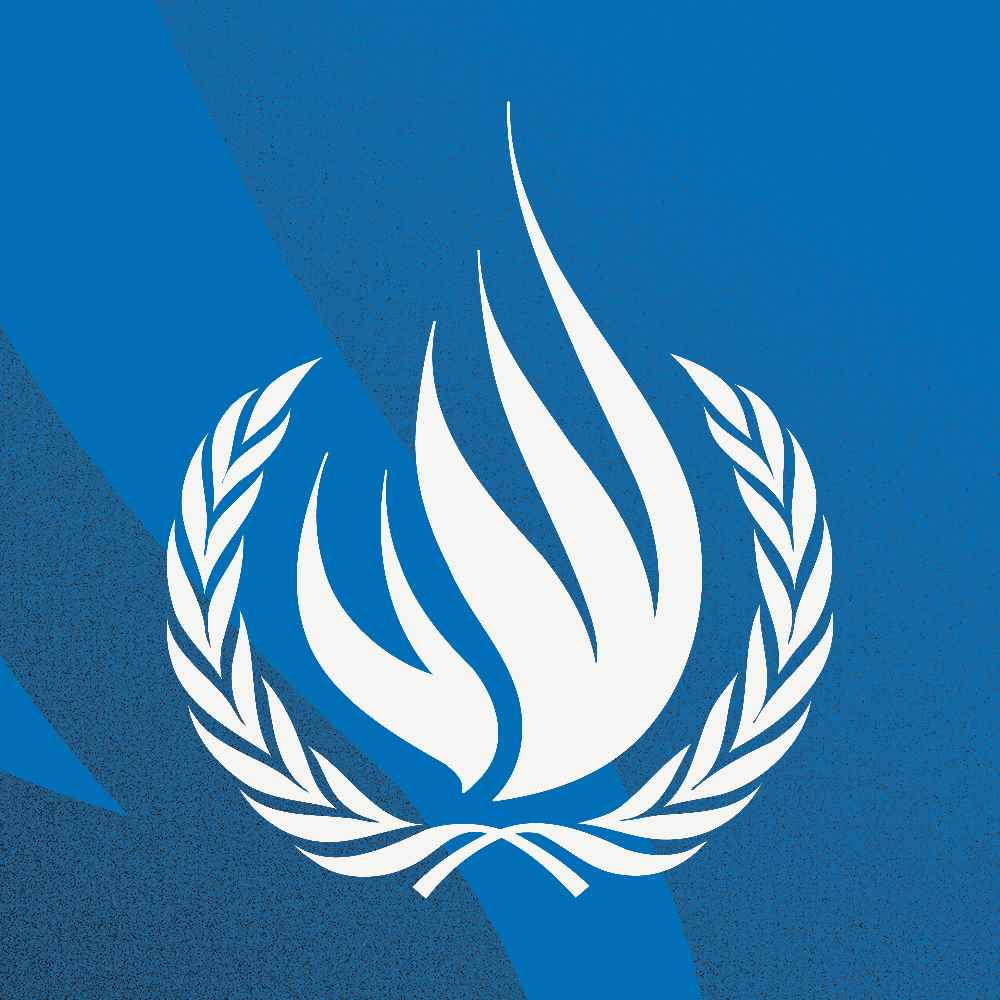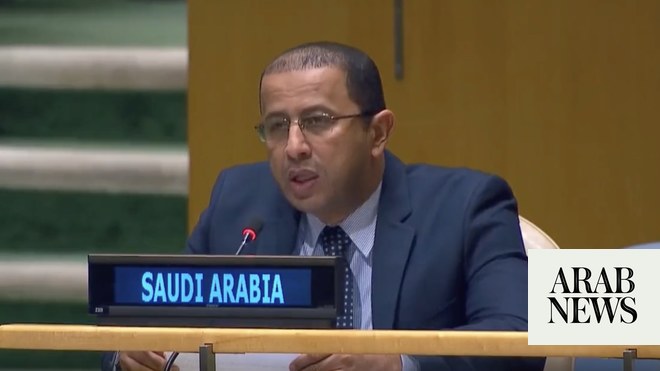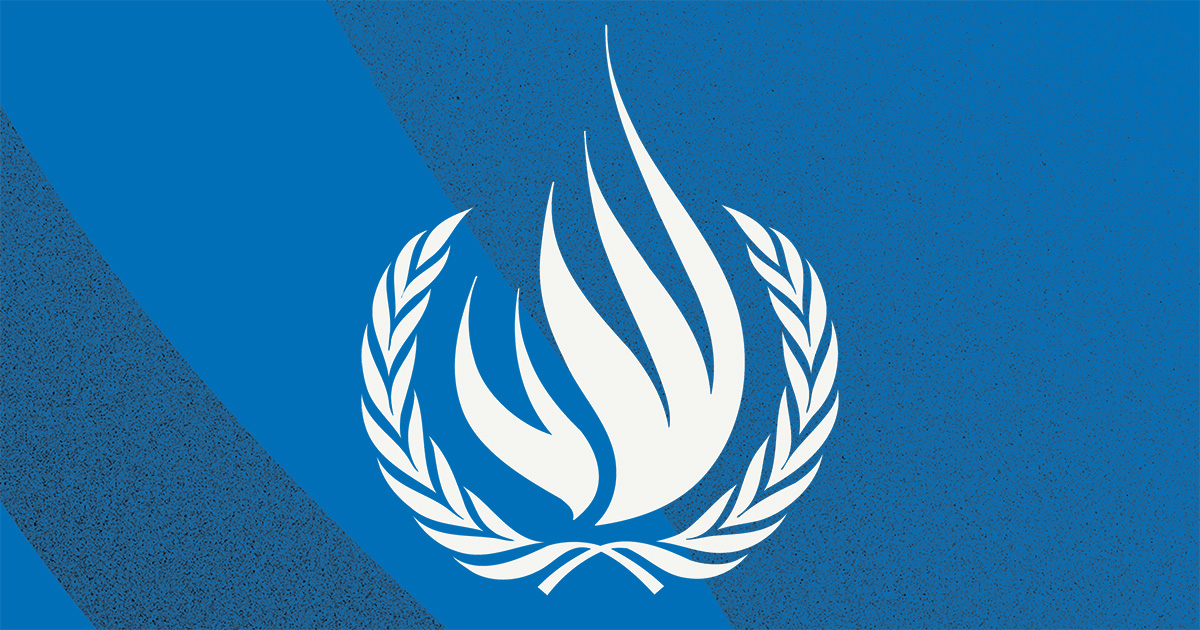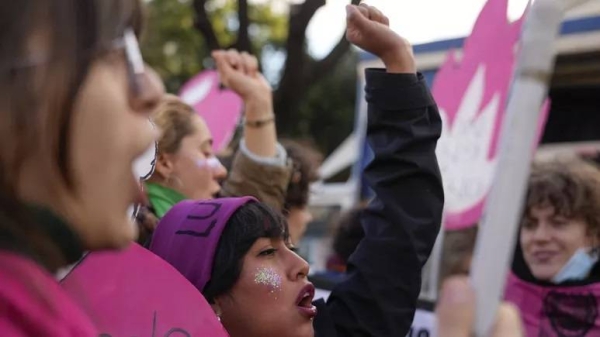
Delivered by
United Nations High Commissioner for Human Rights Volker Türk
Location
Geneva, Palais des Nations
“16 days of activism: eliminating gender-based violence against women and girls in conflict and humanitarian settings”
Excellencies, distinguished participants, colleagues, friends,
It is a pleasure to be here to launch the 16 Days of Activism to End Violence against Women and Girls, held annually between this important day and Human Rights Day on 10 December.
Gender-based violence against women and girls in conflict and crisis is one of the most brutal and abhorrent crimes in our world. And yet, despite universal condemnation, it continues to be used as a tactic of war and a means of political repression.
From Israel and Gaza to Sudan, Afghanistan, Ukraine, the Democratic Republic of Congo, Haiti and beyond, women and girls are being terrorized, brutalized, forced from their homes, raped, detained, denied their sexual and reproductive health and rights, and systematically abused.
The Secretary-General’s report on sexual violence in conflict in 2023 recorded more than 3,600 cases verified by the United Nations, 95 percent of which were against women and girls. And these figures are a tiny fraction of cases. Most are never reported, never treated, and never prosecuted.
As conflicts proliferate, humanitarian crises escalate, and international law is blatantly flouted, women and girls are paying a terrible price. They are targeted for gender-based violence as a tactic of war to humiliate, dominate and instil fear, sometimes with the goal of dispersing and relocating entire communities or ethnic groups. The violence may continue even after the conflict has ended, and the physical injuries and mental trauma it causes may last a lifetime.
Heightened insecurity, organized violence and armed conflicts are both a driver and a result of gender inequalities and discrimination against women and girls. They are inextricably linked with violations of the fundamental human rights of half the population.
As gains for gender equality are being rolled back, we see militarization on the march. While women and girls are denied their basic rights, millions of dollars in armaments are being blown up before our eyes every day, with the most tragic consequences.
Preventing and eliminating gender-based violence in conflict and humanitarian crises is therefore an important path to sustainable peace, based on human rights and human dignity for all.
And gender equality, including the full participation and leadership of women in peace processes – as set out in the Women, Peace and Security agenda – is of course an absolute prerequisite for peaceful, just societies.
Distinguished participants, friends,
It is not that this situation is inevitable. It can and must change.
We know how to reduce and prevent violence against women and girls in conflict and crisis. Many legal and practical operational tools have been developed, applied and tested over the years, but we must make better use of them.
I would like to share some key points in that regard.
First, international law.
In conflict, women’s rights are guaranteed by a robust international law regime, including the Geneva Conventions, the 1951 Refugee Convention, international criminal law, such as the Rome Statute, as well as the Convention on the Elimination of All Forms of Discrimination against Women.
We cannot allow these laws to be undermined, eroded, or applied inconsistently.
Second, perpetrators of gender-based violence against women and girls in conflict and crisis must face accountability. It is disturbing that the vast majority go unpunished. But we also know how important accountability is, because accountability can also deter violations.
My Office is working for justice. I’m glad we have our partners here because we are all doing the same work. Our teams in peacekeeping missions and country offices are monitoring human rights violations and documenting in particular conflict-related sexual violence. We also support those who investigate violations, including Commissions of Inquiry and Fact-Finding Missions that are decided through the Human Rights Council.
Third, we must support survivors and victims and learn from their experiences. There is often too much emphasis on the perpetrators and not enough on the victims.
My Office’s approach to preventing and responding to sexual violence in conflict is centred on survivors. We need to bring out their voices much more. We prioritize the needs of survivors, including groups that are particularly vulnerable or may be specifically targeted.
In fact, we are currently developing a new strategy on gender-based violence that focuses on root causes, including gender, racial and economic inequalities, and also aims to raise awareness of this global scourge. Too often, it is a hidden crime, and victims and survivors suffer in silence and stigma.
Fourth, we must do more to support and empower women’s organizations and women human rights defenders, particularly those that work on the front lines and confront gender-based violence every day.
We cannot address gender-based violence in conflict and crisis without addressing entrenched patriarchy and gender-based power dynamics. At the end of the day, it comes back to power, oppression and the way resources are allocated.
Women play a central role in conflict prevention, conflict management, and sustainable peace efforts. Women human rights defenders have been pivotal in addressing discrimination and inequality and advancing all human rights – civil, political, economic, social and cultural – for the benefit of everyone.
We need to do more, and the record is not good, when it comes to peace processes, for example.
Women must be at the negotiating table; in the courtroom; in the boardroom; on panels and task forces; in parliaments and in governments.
And there again, we see the proportion of women in parliament actually shrink.
Distinguished participants, dear friends,
Gender-based violence in conflict and crisis reverberates down generations and works against peace, security and human rights for decades.
Preventing and ending these crimes is a prerequisite for a more peaceful and just world, which needs to ensure that all women and girls can live free from abuse, fear and violence.
These 16 days of activism should really become 365 days of activism.
Thank you very much,










